Turn any article into a podcast. Upgrade now to start listening.
Premium Members can share articles with friends & family to bypass the paywall.
The Trump administration’s military buildup around Venezuela has drawn condemnation and concern from allies, and the U.K. and Canada are not just speaking out: Reports indicate that their intelligence and security services have stopped sharing some counternarcotics information with American colleagues. This is a meaningful development, as no liaison relationships are more important for U.S. intelligence than those with our “Five Eyes” British Commonwealth partners: the U.K., Canada, Australia, and New Zealand.
Indeed, the U.S. intelligence and special operations communities trace their lineage to Britain. The U.K.’s Secret Intelligence Service, MI6, helped establish America’s Office of Strategic Services during World War II, which later grew into the Central Intelligence Agency. Indeed, much OSS training took place in Canada and Britain. MI6 and CIA jointly handled some of the most sensitive human intelligence cases of the Cold War, such as that of Soviet GRU Col. Oleg Penkovsky, whose reports helped save the world from nuclear war during the Cuban Missile Crisis. The U.K.’s Government Communications Headquarters brought U.S. signals intelligence as a junior partner into the biggest secret of the war against Hitler: its breaking and exploitation of German military and naval codes, hastening the postwar establishment of America’s National Security Agency.
After World War II, the British Army’s Special Air Service and the Royal Marines’ Special Boat Service served as models for correlative Army and Navy Special Mission Units in the U.S. armed forces. Elite British and American units routinely exchange liaison officers who serve as deputy commanders of the other country’s servicemembers, including in combat.
While thus far reports indicate that the U.K. and Canada are withholding only counternarcotics intelligence, it's worth looking at the larger stakes. U.S. intelligence cannot do its best work without the Five Eyes’ assistance. Russian, Chinese, or North Korean intercontinental ballistic missiles seeking the shortest path to carry out nuclear strikes on America would fly over Canada; some might first be spotted from Britain. The U.S. therefore relies upon radars based in those countries. Signals intelligence platforms based in Australia and Britain seeking to intercept adversaries’ communications are much closer to Beijing and Moscow than similar bases in America. For diplomatic reasons, the U.S. does not maintain embassies in Caracas, Damascus, Minsk, Pyongyang, or Tehran. Do Five Eyes allies who maintain such presences do U.S. intelligence any professional courtesies? I suspect they do, as when Canada helped exfiltrate American personnel from Iran during the hostage crisis in 1980.
Crucially, when the U.S. goes to war, our British Commonwealth allies stand shoulder-to-shoulder and back-to-back with America. All fought together in the World Wars, Korea, the Gulf War, and Afghanistan. Australia and New Zealand even joined America in Vietnam, and the Aussies and Brits joined the U.S. in Iraq. I served alongside Commonwealth forces as an American soldier in Bosnia, Iraq, and especially Afghanistan.
In Kandahar in 2010, I served under the regional command of a British general. I worked with Royal Marine commandos who trained local nationals in foot surveillance, going into the pro-Taliban slums of Kandahar City disguised in dishdashas, with just Browning Hi-Power pistols for self-defense—amazing day-in, day-out bravery by those quiet professionals. Canadian special forces conducted a patrol just to help me meet a potential human source, who, to my embarrassment, did not show, and they did not complain (to me, anyhow). Canadian forces suffered a far higher percentage of casualties than U.S. forces in Afghanistan. I was keenly conscious in dealing with allied servicemembers after 9/11 that they deployed to avenge an attack on my hometown of New York, not on their homes of London, Toronto, Sydney, or Auckland. I remain deeply grateful that they came to our aid in our hour of need.
This is the important context in which the British and Canadians (and possibly also the Australians and New Zealanders) decided to stop sharing information with the U.S. on counternarcotics. America’s closest allies, who share their most delicate and important intelligence with Washington, are refusing to do so on drugs, and London and Ottawa are pointedly making that unusual refusal known in public. Why?
Killing seamen based only upon the suspicion that their vessels carry illegal drugs—with at least 21 boats sunk and 83 dead, and counting—violates international law and, more to the point, the Five Eyes countries’ national laws. In none of these five countries is narcotics trafficking, by itself, a capital crime. Indeed, the four British Commonwealth countries long since abolished capital punishment for any crime, and even in the U.S. the death penalty is reserved for murder in the first degree and in special circumstances. As such, Vice President J.D. Vance’s tweet that he did not “give a sh-t” if these sinkings are called war crimes was … less than helpful … to allies in London and Ottawa. Ditto President Trump’s statement that, “We’re just going to kill people that are bringing drugs into our country. OK? We’re going to kill them.”
When I deployed to Yemen as the sensitive activities officer for a small special operations task force in 2018, intelligence routinely indicated that certain vessels were carrying antiship missiles from Iran to Houthi rebels, while others were ferrying arms between al-Shabaab terrorists in Somalia and al-Qaeda in the Arabian Peninsula terrorists in Yemen, and still others were engaging in old-fashioned acts of piracy. Yet even though Congress granted the U.S. military a broad authorization to use force against actual terrorists (not so-called “narco-terrorists” motivated only by money and not politics or religion) back in 2001, we understood that these ships and boats could be stopped, boarded, and searched by Navy SEALs and Marines, and their crews detained and interrogated. They could not be bombed and sunk, leaving their crews to drown or be devoured by the tiger sharks teeming in the Gulf of Aden.
Beyond the (il)legality of using lethal force against narcotics traffickers, blowing up these boats and killing their crews makes no practical sense and can even be counterproductive. While working as senior counsel for Homeland Security Secretary John Kelly in 2017-18, I enjoyed the privilege of visiting Joint Interagency Task Force South in Key West, Florida, which expertly led nonlethal maritime drug interdiction efforts that remain crucially important. I learned that drug loads are more useful seized and studied as evidence than sunk. Meanwhile, suspected drug runners’ mobile phones now sinking to the bottom of the Caribbean Sea or Eastern Pacific Ocean are not being exploited for signals intelligence. And crewmen are not now being flipped into human intelligence sources and law enforcement cooperators by talented Drug Enforcement Agency and Department of Justice personnel at the “Panama Express” operation run out of the U.S. Attorney’s Office for the Middle District of Florida.
All that is being gained with these airstrikes is visuals of killing suspected bad guys, filmed for the sick enjoyment of Walter Mittys sitting safely in their Barcaloungers at home. No wonder the British and Canadians want nothing to do with this spectacle put on for the benefit of the emotionally and morally unwell. Not to mention, the criminal exposure that everyone involved in these operations will eventually face, if not in their own countries than in third countries that enforce the international arrest warrants—“red notices”—undoubtedly being sought by the Venezuelan and Colombian governments for the murder of their citizens on the high seas.
Beyond counternarcotics intelligence, I wonder whether the Five Eyes are also cutting back information sharing on more secretive topics. Defense Secretary Pete Hegseth infamously disclosed classified operational details of a coming airstrike in Yemen on an insecure messaging application, to an audience including a journalist with no security clearance, the Atlantic’s Jeffrey Goldberg. Secretary of State Marco Rubio abrogated Department of Justice agreements with MS-13 members cooperating as informants with federal law enforcement, returning them to certain death in El Salvador at the request of Nayib Bukele. And valid counterintelligence concerns remain regarding the president’s odd personal admiration for Vladimir Putin, North Korea’s Kim Jong Un, and China’s Xi Jinping.
Given Hegseth’s logorrhea, Rubio’s cold-blooded willingness to fatally betray human sources, and President Trump’s fondness for dictators, have the British and other allies been withholding good but source-revelatory information on hard targets from U.S. intelligence since January 20, 2025? Americans cannot know for sure, but I suspect so. And who can blame them? FBI Director Kash Patel reportedly lying to the director general of the British Security Service, MI5, about a China-related matter during a recent visit to London (during which he also bizarrely wore a trucker hat and hoodie to a formal meeting with the Five Eyes’ security services’ chiefs) likely did little to alleviate any allied concerns.
The Trump administration’s desired strategic end state in Venezuela is likely to replace the left-wing, anti-American regime of Nicolas Maduro, given the presence of the USS Gerald R. Ford carrier strike group and the 22nd Marine Expeditionary Unit, embarked upon the USS Iwo Jima, off of that country’s coast. But narcotics overdose deaths in the U.S.—more than 75,000 in the last 12 months alone—by themselves represent a severe problem, and the Trump administration is quite right to increase pressure on drug cartels, including through stepped-up maritime interdiction.
Using lethal force, however, is a bridge too far. This rash and illegal policy produces seriously negative secondary effects that could have further downstream consequences. Damaging longstanding intelligence liaison relationships with America’s closest allies only makes us more vulnerable to dangerous foes such as Russia and China.

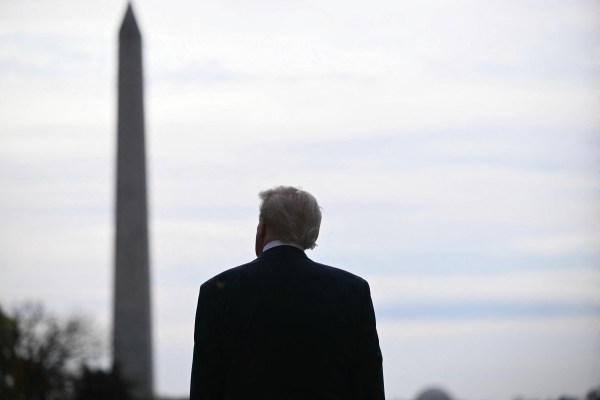
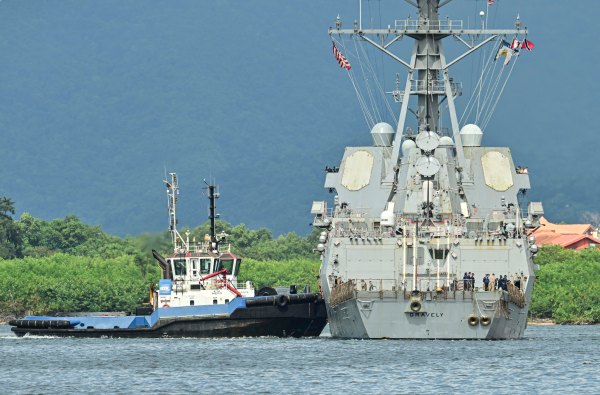
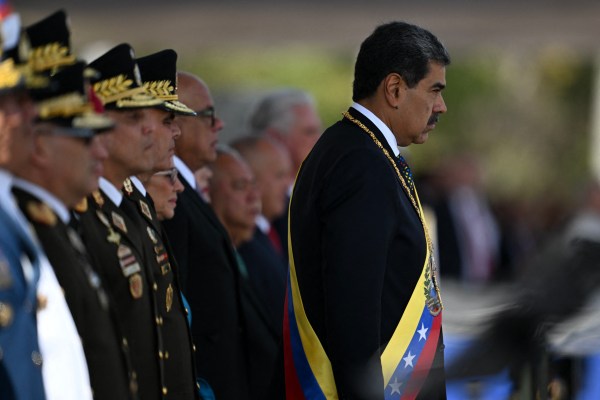
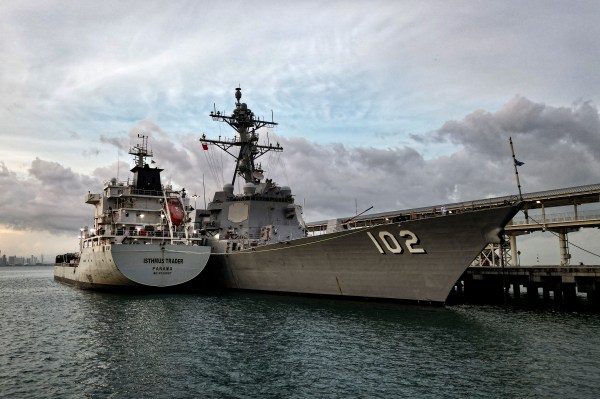
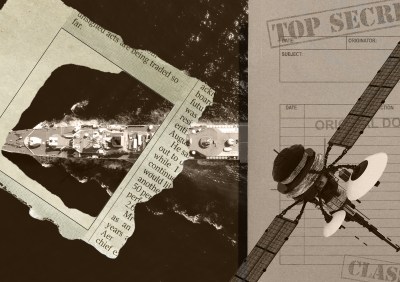
Please note that we at The Dispatch hold ourselves, our work, and our commenters to a higher standard than other places on the internet. We welcome comments that foster genuine debate or discussion—including comments critical of us or our work—but responses that include ad hominem attacks on fellow Dispatch members or are intended to stoke fear and anger may be moderated.
With your membership, you only have the ability to comment on The Morning Dispatch articles. Consider upgrading to join the conversation everywhere.